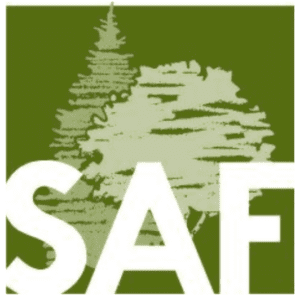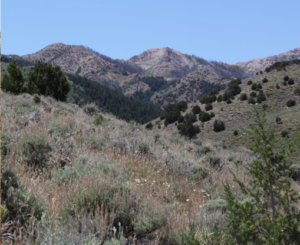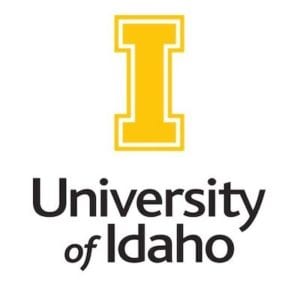Search Results: %E6%9C%80%E6%96%B0%E3%81%AEOmniStudio-Developer+%E5%87%BA%E9%A1%8C%E7%AF%84%E5%9B%B2%E8%A9%A6%E9%A8%93-%E8%A9%A6%E9%A8%93%E3%81%AE%E6%BA%96%E5%82%99%E6%96%B9%E6%B3%95-%E4%BE%BF%E5%88%A9%E3%81%AAOmniStudio-Developer+%E5%BE%A9%E7%BF%92%E5%95%8F%E9%A1%8C%E9%9B%86+%F0%9F%A4%B1+%E3%80%90+www.goshiken.com+%E3%80%91%E3%81%8B%E3%82%89%E2%87%9B+OmniStudio-Developer+%E2%87%9A%E3%82%92%E6%A4%9C%E7%B4%A2%E3%81%97%E3%81%A6%E3%80%81%E8%A9%A6%E9%A8%93%E8%B3%87%E6%96%99%E3%82%92%E7%84%A1%E6%96%99%E3%81%A7%E3%83%80%E3%82%A6%E3%83%B3%E3%83%AD%E3%83%BC%E3%83%89%E3%81%97%E3%81%A6%E3%81%8F%E3%81%A0%E3%81%95%E3%81%84OmniStudio-Developer%E3%83%86%E3%82%B9%E3%83%88%E8%B3%87%E6%96%99
View article.
Stephen Pyne is Regents Professor in the School of Life Sciences at Arizona State University. This is an abridged version of a piece that appeared on The Conversation; to read the entire piece, go to theconversation.com
Workshop resources, recordings.
Invasive annual grasses (IAG) – including cheatgrass, medusahead, ventanata, and others – continue to be a primary cause of rangeland degradation in the western US. In this workshop, we build upon concepts presented in previous events (see https://www.invasivegrasses.com/virtual-workshop) and focus specifically on turning strategies into action for managing IAG. Not only will we learn about the most current science around managing IAG, we will also hear success stories from ongoing projects and partnerships around the West.
You asked for it, you get it! A major component of this year’s virtual workshop will focus on answering questions submitted by you, the participants. We have compiled a list of questions submitted by previous workshop participants and will combine them with questions you can submit when you register to provide specific responses to those questions. Together, we will explore uniting landscape-scale strategic conservation concepts with targeted, on-the-ground management techniques specifically designed to meet vegetation management goals.
The Southwest Climate Adaptation Science Center, USDA Forest Service, and many other organizations are hosting a yearlong series of workshops and webinars to advance wildlife management relating to fire in the Southwest. This series will kick off with a two-part virtual workshop that will highlight case studies, emerging research, and more.
Day and time: January 23 @ 1-4 p.m. MST and January 24 @ 9-12 p.m. MST
To learn more and register, visit https://www.surveymonkey.com/r/3V7DW6Q.
The SageSTEP research team invites you to join us for a tour of the Onaqui research site near Tooele, Utah on May 21, 2024. We will tour the SageSTEP (https://sagestep.org/) shrubland network, SageSTEP woodland network and NEON sites (https://www.neonscience.org/field-sites/onaq), hear results from the past 15 years of data collection, and discuss management needs and research priorities for the next decade. We are particularly interested in hearing management perspectives on areas of greatest future need. 2024 field tour flyer
Logistics
Tooele is less than an hour from SLC. Lodging options include the Holiday Inn and Best Western. We recommend SUV/Trucks, particularly if there is rain prior to the tour.
Meet at 8am on Tuesday, May 21 at the Holiday Inn in Tooele (Address: 1531 N Main St, Tooele, UT 84074) to carpool/caravan to the Onaqui site. We plan to return to Tooele by 5pm. Please bring adequate food/water and be prepared to be outside all day.
There will be a no-host dinner on Monday, May 20 at 6 pm for any who can join.
Please RSVP to Lisa Ellsworth at: lisa.ellsworth@oregonstate.edu
Webinar recording (50:31).
Led by Hawai’i Wildfire Management Organization (www.hawaiiwildfire.org), this webinar equips you with essential strategies to prepare, respond, and stay safe in the face of wildfires. From creating defensible spaces to crafting evacuation plans, we’ll cover it all. Don’t wait until it’s too late – arm yourself with knowledge and confidence. Register now and take the first step toward wildfire readiness!
Description: Management of expanding pinyon-juniper woodlands in sagebrush habitats has become a prominent strategy for sagebrush conservation, with spatially targeted tree removal efforts designed to benefit sage-grouse increasing over the past decade. This webinar will highlight recent literature on wildlife response to pinyon-juniper management across the West, and new science and tools for considering sagebrush- and woodland-obligate songbirds, like pinyon jay, in conifer management. Knowledge gained from wildlife studies will be put into context of emerging remote sensing analyses that provide a comprehensive picture of continued woodland change.
Presenters: Jason Tack, US Fish and Wildlife Service, Habitat and Population Evaluation Team, Missoula, MT; Jeremy Maestas, USDA Natural Resources Conservation Service, West National Technology Support Center, Portland, OR.
CE Credits: This webinar was approved by the Society for Ecological Restoration for 1 Continuing Education Credit (CEC).
To receive credit you’ll need to reference pre-approval code 16067645 and upload your webinar certificate (automatically emailed from Joint Fire Science Program JFSP following your attendance) at ser.submittable.com
Webinar recording.
To aid practitioners in planning and implementing conservation actions, we recently developed the Grassland and Sagebrush Conservation Portal in the web platform, ArcGIS Online. This portal provides access to geospatial resources such maps, apps, and data developed by the U.S. Fish and Wildlife Service and its partners as well as other open-access resources. We intend to grow the resources in the portal in ways that are complementary to other online platforms. The Service’s development team will provide a tour of the portal, answer questions, and ask for suggestions for relevant resources that could be added.
The webinar will be presented by the U.S. Fish and Wildlife Service team that developed the Grassland and Sagebrush Conservation Portal. For questions, please contact mary_mcfadzen@fws.gov
When: May 28th – 30th, 2025
Where: Prineville, Oregon
Board meeting, presentations and first night social: 4-H Clover Building, 502 SE Lynn Blvd, Prineville, OR 97754
Cost: Regular Registration (until May 14th): $75; Late Registration (after May 14th): $85; Student Registration: $25; May 28 only – social and light dinner/appetizers, evening presentation: $30
Questions: Contact Andy Neary, Central Oregon Chapter
More information and registration.
Grass Identification Course
Thursday-Friday, June 12-13, 2025
Rinker Rock Creek Ranch
Rock Creek Road, Blaine County (near Hailey, Idaho)
Rinker Rock Creek Ranch will be offering a two-day field course taught by Justin Trujillo (author of A Field Guide to Grasses and Grass-like Plants of Idaho) that will focus on learning the basic morphology of grasses and grass-like plants. This course will cover identification of mostly cool- and some warm-season grasses common in the sagebrush steppe. Students will receive a plant press, hand lens, and identification book for the course fee.
This course does not include meals; those enrolled should plan to bring food/snacks and water into the field each day.
Camping will not be available on the ranch. Here are some campsites nearby:
- Picabo Angler RV Park
- Hayspur Fish Hatchery Campground
- Stanton Crossing Campground
- Silver Creek West
- Silver Creek East
This course is eligible for 6 CEU credits through the Society for Range Management.
Register early – the course is limited to 20 participants.
Questions? Please email Justin Trujillo (jjtrujillo2003@gmail.com) or Dr. Tracey Johnson (traceyj@uidaho.edu)
Access application and maps.
The ERA Tool is a map-based, searchable application to select native plants for restoration and pollinator habitat enhancement by US Environmental Protection Agency (EPA) Level III Ecoregions. Since ecoregions are areas of similar climate and topography that contain characteristic, geographically distinct assemblages of natural communities and species, they are an ideal organizing unit for selecting plants for restoration. State floras, on the other hand, have many species that only occur in some ecoregions and are not appropriate choices for restoration elsewhere.
Contact: Mark Skinner, USDA Forest Service, 503-312-1656, mskinner02@fs.fed.us
The ERA is part of a comprehensive national revegetation learning project called Roadside Revegetation: An Integrated Approach to Establishing Native Plants and Pollinator Habitat. Learn more http://www.nativerevegetation.org







